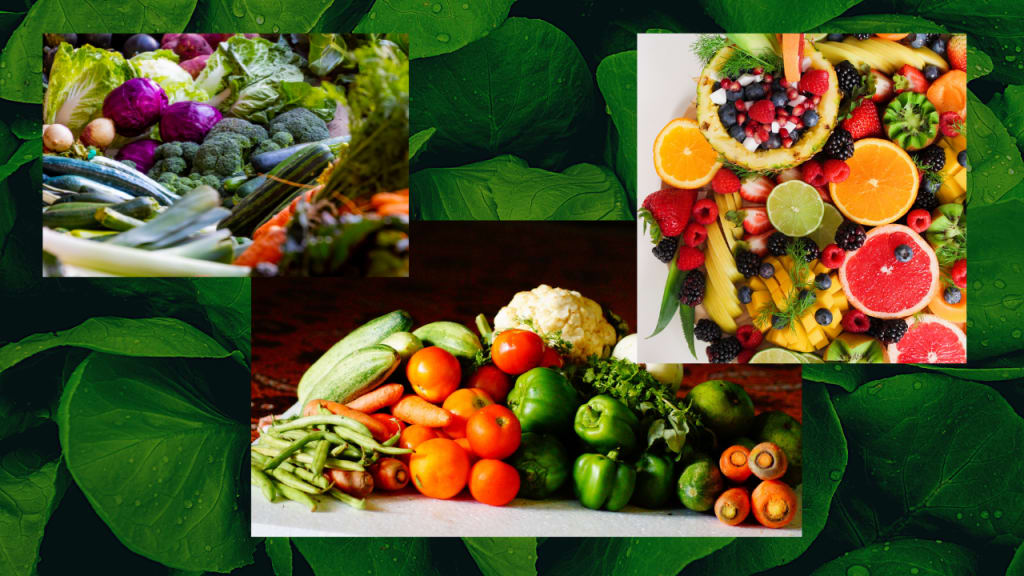What Are The Benefits Of Organic Vegetables?
Importance of Organic Vegetables

What Are The Benefits Of Organic Vegetables?
Introduction
In the last decade, organic vegetables have gained wider popularity in North America and Europe. The benefits of organic vegetables are numerous. They not only help you achieve a healthier lifestyle and better immune system but also contribute to reduced environmental pollution.
In addition, they provide a safer environment for farm workers and animals. Organic vegetables have no pesticides or herbicides that can harm your health, making it a more humane way of farming.
Organic vegetables are produced without the use of chemical pesticides and with minimal or no synthetic fertilizers. Organic farming is a way to ensure that the food you eat is grown in an environmentally sound manner, free of toxic chemicals, and safe for your family to consume.
What are the benefits of organic vegetables?
Organic foods are becoming increasingly popular. Large food brands are spending billions of dollars to advertise their organic products, spurred on by an ever-increasing demand from consumers.
Studies have shown that organic food is healthier for you, but a lot of people aren’t aware of the other benefits it has over conventional food. Organic products taste better, costs less in the long run, and help the environment.
Organic vegetables have a lot of benefits. If you are planning to buy fresh vegetables for your meals, here are the top 5 reasons why you should choose organic.
1. Organic vegetables are more nutritious than conventional ones. They have more vitamins, minerals, antioxidants and, other disease-fighting compounds.
2. Organic foods contain no chemicals or preservatives. Organic foods are free from pesticides, herbicides and, other synthetic chemicals.
3. Organic vegetables are good for the environment because they don’t require pesticides and insecticides to grow. Therefore, they don’t pollute the environment
The cost of non-organic vegetables
A report released by the Environmental Working Group (EWG), an environmental organization, found that Americans are exposed to more than 200 harmful pesticides every single day. The average person consumes up to 73 different pesticides a year.
Are you a fan of organic food? If so, then you should know that you are paying more for the same things than your non-organic counterparts. But here’s the thing: It doesn’t have to be this way.
Organic food is much healthier for you, which means that you should be willing to pay a little bit extra for it. Here, we discover the true cost of non-organic vegetables and other foods, and how we can avoid paying more than we should be.
The importance of eating organic!
Organic food is growing in popularity. 30 years ago, only 1% of the U.S. population ate organic food. Today, it’s estimated that about 5% of Americans eat at least some organic food each year. It’s no wonder why a large number of studies have concluded that eating organic can lower your risk of cancer and reduce your risk of heart disease.
Eating organic has a lot of health benefits but it’s not cheap! Organic products typically cost more than the average supermarket product, so many people go for conventional fruits and vegetables.
If you don’t think organic food is important, you should read this article. If you do think it’s important, you should share this article with your friends and family. Organic food isn’t just more nutritious than regular food, it’s also better for the planet.
Why choose organic vegetables, fruits?
Like most people, you probably assume that conventionally grown produce—the kind available in most grocery stores—is the safest and healthiest option.
A lot of people are concerned about the pesticides used to grow conventional produce. They worry about toxins and other chemicals that don’t belong in their food. After all, there’s a reason you don’t eat paint chips or car wax.
Organic food products are grown without synthetic fertilizers and chemical herbicides, pesticides, and fungicides. This means they are grown without synthetic chemical agents. Instead,
Organic produce is, on average, more nutritious than conventional produce. It's also free of pesticides and chemical fertilizers, which are both known to be harmful to health.
Our interest in organic food has increased in recent years, with 64% of shoppers saying they buy organic food at least sometimes, according to a 2014 survey by the US Department of Agriculture.
Is Organic vegetables are better for you!
Many people think organic food is better than non-organic food. The reason they give is that they are not sure what pesticides do to their body. But you have to be careful because, in some countries, the government will allow a certain amount of pesticide residue in food.
Organic food is becoming popular these days, but is it different from conventional food? Organic food means the food is grown without synthetic fertilizers, pesticides, hormones, antibiotics, and genetic engineering. We know that organic food is healthier than non-organic foods. But why?
Studies show that organic fruits and vegetables contain 49% more antioxidants than conventionally grown foods. Antioxidants help to prevent certain diseases such as cancer and arthritis. According to a study conducted by scientists at Newcastle University in the UK, people who have much intake of antioxidants were less likely to die from cardiovascular disease or cancer.
Conclusion
It’s important to remember that organic vegetables are not just better for the environment, but they taste better and are much more nutritious than their conventional counterparts. By using the tips in this article, you’ll be able to find a local farmer’s market or farm stand near you that offers high-quality organic produce.
About the Creator
Enjoyed the story? Support the Creator.
Subscribe for free to receive all their stories in your feed. You could also pledge your support or give them a one-off tip, letting them know you appreciate their work.





Comments
There are no comments for this story
Be the first to respond and start the conversation.